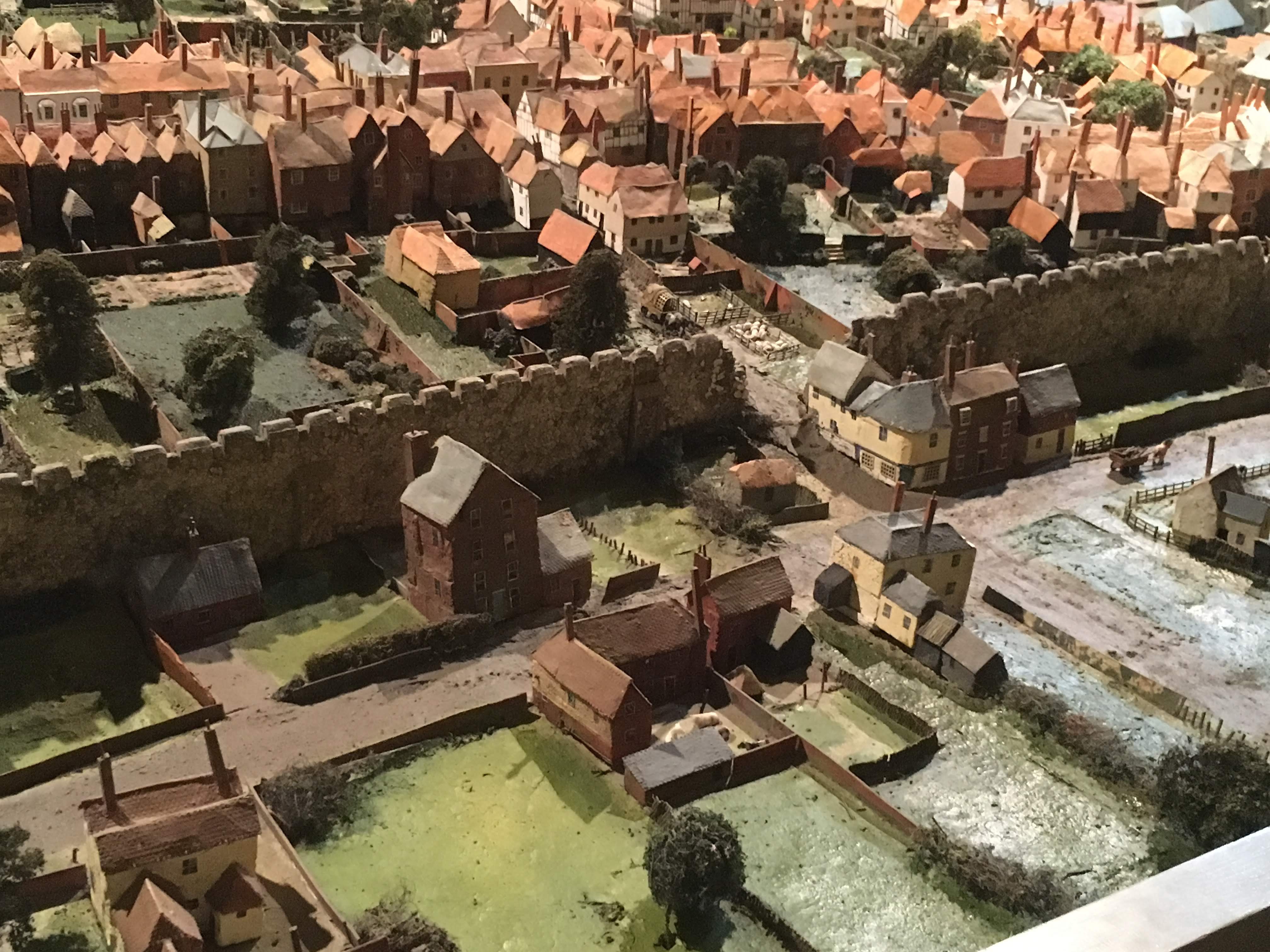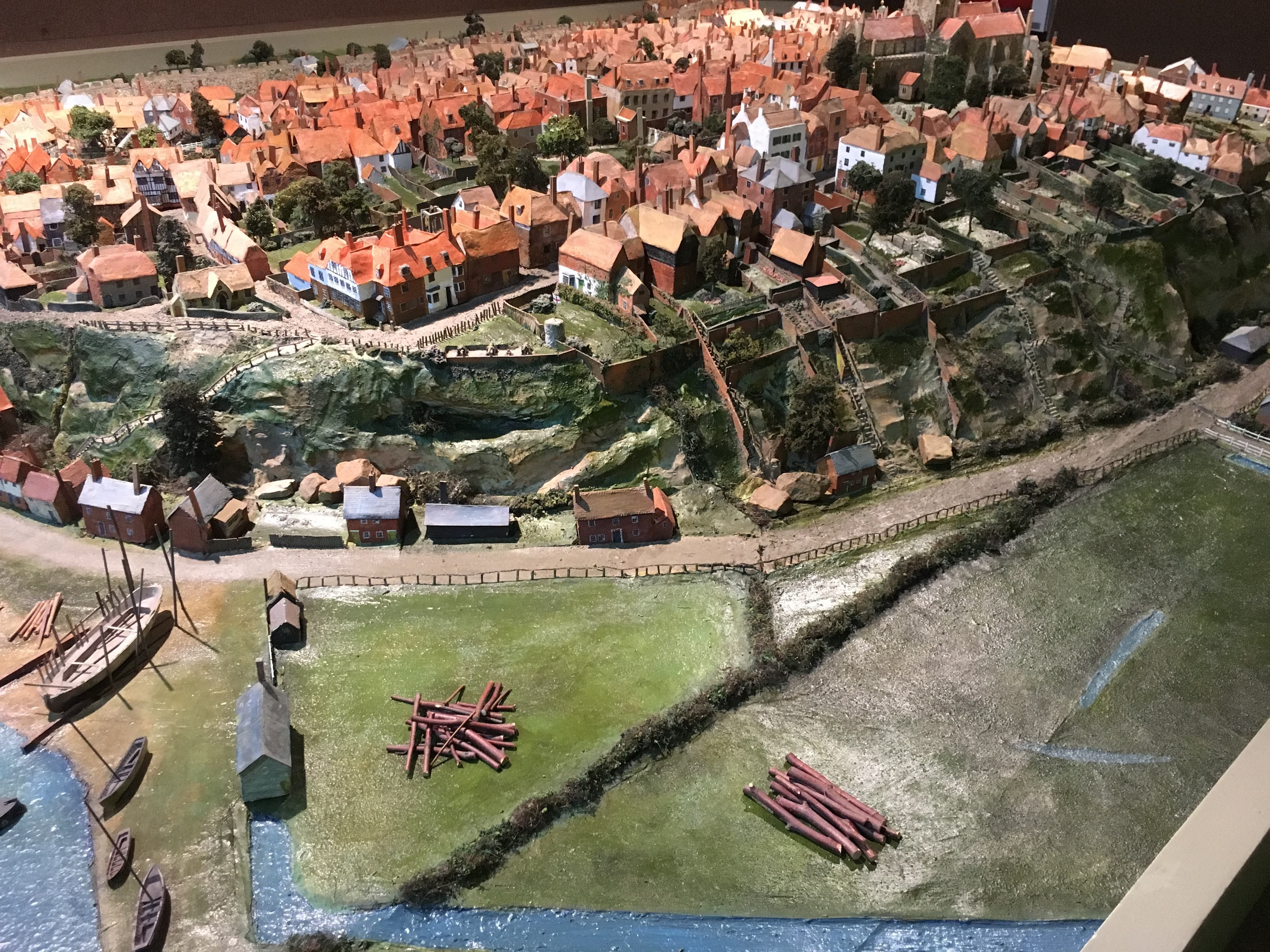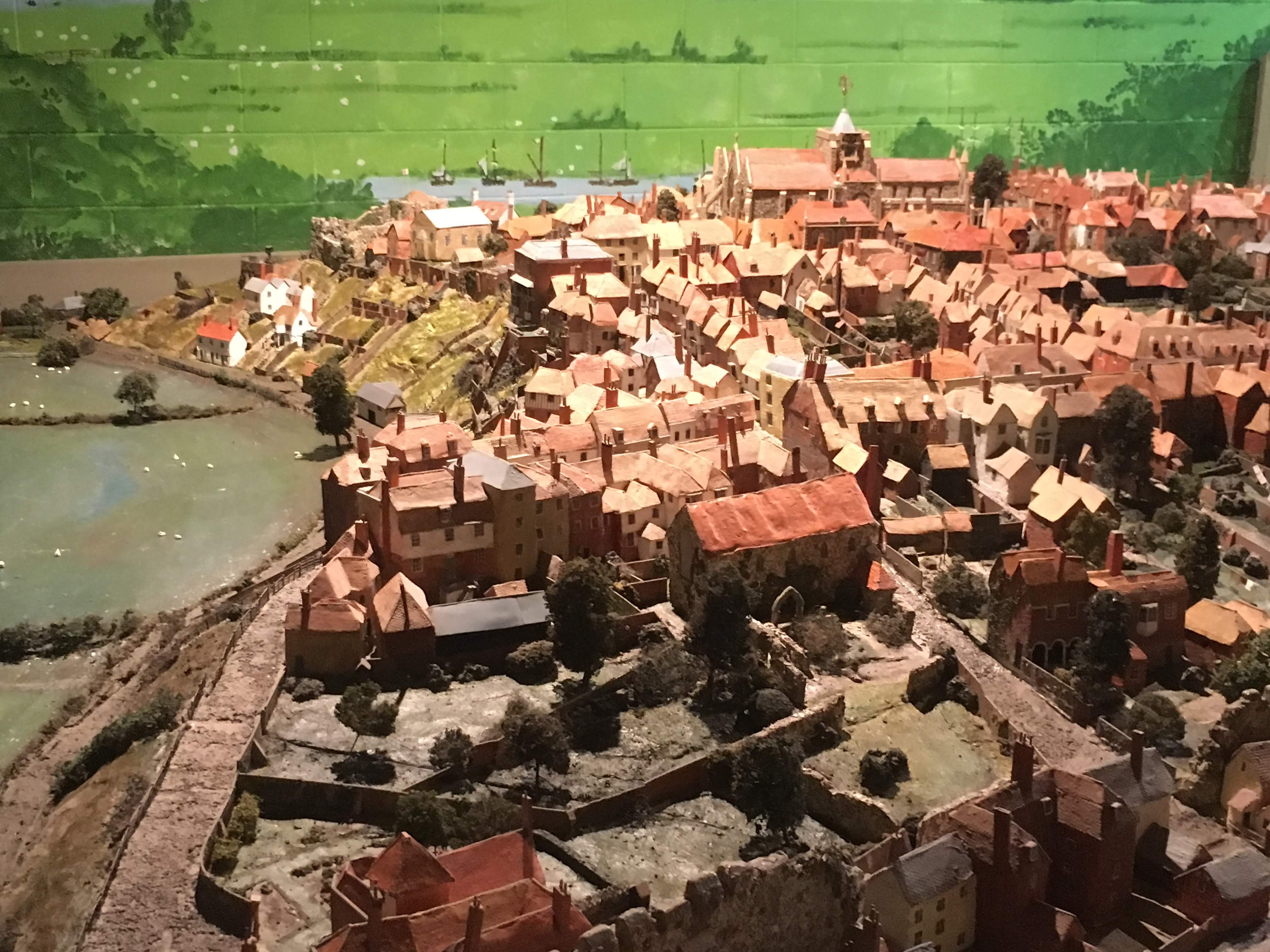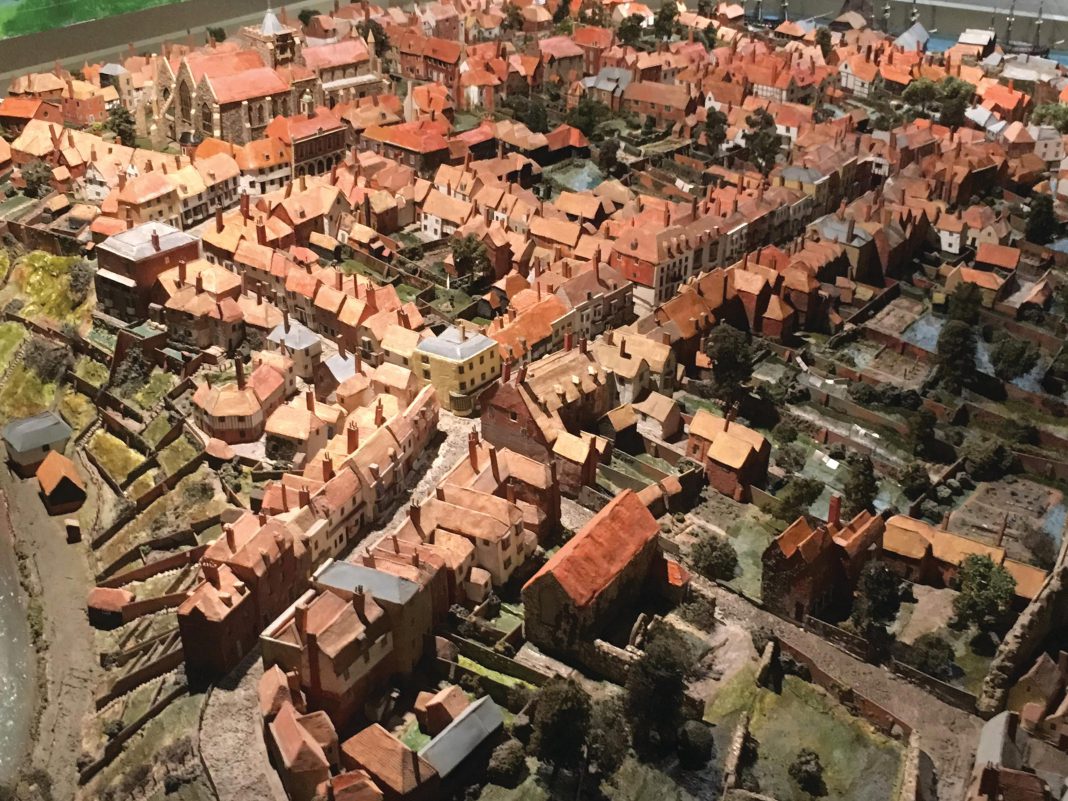Thankfully, the Rye Town Model is now remaining at the Rye Heritage Centre and will once again be on display and accessible to all when the Heritage Centre re opens on Sunday 5 April – and admission on the day is free.
The model has been viewed by many thousands of visitors over the years and is one of Rye’s main tourist attractions. As well as being a labour of love, it is also a feat of engineering and will now continue to be part of Rye’s rich cultural heritage. But who built it, when was it built, and what was the motivation for building it?
Joyce Harland attended Merchants Taylor’s school and won a scholarship to Oxford where she studied PPE (Philosophy, Politics and Economics) at Lady Margaret Hall doing a two year wartime degree between 1941-1943.

She came from an artistic and creative family as her father Louis was head of the Civil Service Customs & Excise but, as a hobby, was a member of the Inner Magic Circle and inventor of magic tricks which are still in use today – and her mother was a talented painter.
Her husband Edward (Ted) Harland worked for Shell as an engineer in London and was fascinated by electronics and had all the latest electrical equipment at their home. So the Rye Town Model was a creation born out of their joint interests, artistic creativity, and a passion for electrical equipment and electronics.

Joyce spent most of the 1950s teaching history and French in Vancouver, Canada but returned to London and married Ted in 1962 and then moved to Rye in 1966. She developed her hobbies of painting and pottery and was a member of Rye Society of Artists working with David Sharpe and with regular exhibitions at the annual shows.
They also travelled to Europe on painting trips and it was during those trips she visited a Son et Lumiere (sound and light show) in France and became inspired to create one for Rye. It took them four years to design, build and coordinate the project and cost the family about £12,000 due to the cost of the electrical equipment.
It has to be remembered that in the early 1970s you could buy a a house for £12,000 so it was a significant investment at the time and a marvellous legacy for the town. When it first opened in 1974 at the boys club in Mermaid Street the queues stretched down the street and at that time the entry fee was £2.50.
Joyce Evelyn Harland died in 2000, and her husband Edward died in 2005, but their legacy lives on. Rye Town Model will no doubt continue to educate and appeal to visiting tourists, local residents and a wide international demographic for many years to come.

Image Credits: Colm Doherty .



